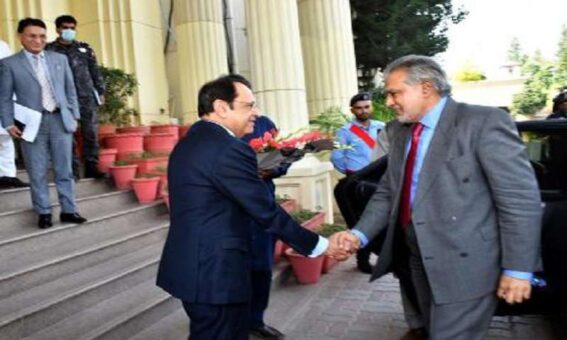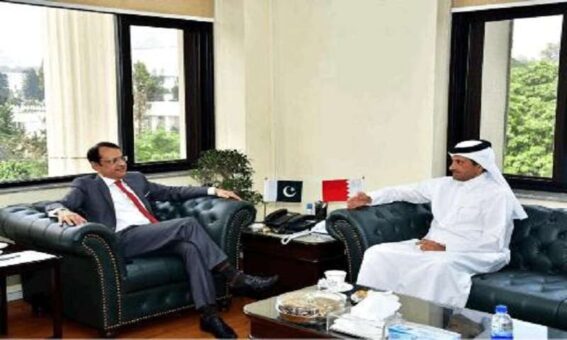ISLAMABAD: Federal Board of Revenue (FBR) likely to extend the last date for filing income tax return for tax year 2022 considering the prevailing situation due to floods and technical issues on the online return form.
The last date for filing income tax return for tax year 2022 is September 30, 2022. The FBR already announced that it would not extend the date and urged the taxpayers to make compliance within due date.
READ MORE: FBR allows refund adjustment to facilitate return filing
Sources in the FBR said that although no decision had been taken so far in this regard. However, the revenue body was considering seriously on the date extension sought by the business community.
Chambers and association have approached the FBR to extend the last date for filing income tax return, which is expiring on September 30, 2022.
Muhammad Idrees, President, Karachi Chamber of Commerce and Industry (KCCI) in a letter sent to the Finance Minister requested to issue to the FBR for extension in last date for filing income tax returns from September 30, 2022 to December 31, 2022 keeping in view the unusual situation emerging all over the country due to recent rainfalls and flash floods.
He stated that the chamber was constantly being approached by the members of the business and industrial community and also by the people belonging to different walks of life who wanted the last date to be extended till December 31, 2022.
READ MORE: FPCCI seeks statutory time for return filing after error removals
“Due imposition of ban on imports which was followed by unusual situation all over the country emerging after torrential rainfalls and flashfloods, the taxpayers, particularly the members of the business & industrial community, are facing a lot of problems as a large portion of receivables from various parts of the country badly hit by floods are still pending,” he said.
It was a well-known fact that the business, commercial, agricultural and all other activities in the flood-hit areas have come to a total halt which has created serious cashflow issues and it will take at least two more months to return to normalcy.
In this scenario, it has become inevitable to provide relief to loyal taxpayers in shape of extension in last date hence, keeping in view the ground realities, he requested the Finance Minister to order FBR to extend the last date for filing income returns to December 31, 2022 which will be widely welcomed by the loyal taxpayers from all over the country.
Besides, the return filing portal is also encountered with some glitches which the tax practitioners said those were not removed so far.
READ MORE: FBR advised to extend tax return filing date for three months
Karachi Tax Bar Association (KTBA) recently highlighted problems on the online return form. It said Column for adjustment of brought forward capital losses under the head of capital gains is not available in Income tax return form due to which tax on capital gain cannot be calculated correctly.
The Column of tax credit for specified industrial undertakings u/s 65G of the Income Tax Ordinance, 2001 is inadvertently available in the Tax Credits Annexure of income tax return for salaried individuals, which has no correlation with such tax credit.
Although the rate of tax on contract receipts under section 153 was reduced from 7.5 per cent to 7 per cent for Tax Year 2022, however, there is no column for such reduced rate in the return for the TY 2022 available on IRIS.
The draft of manual return forms for the Individuals and AOPs for the Tax Year 2022 was issued belatedly on August 26, 2022, whereas the final SRO. 1733(1)/2022 was issued on September 13, 2022 meaning thereby only 17 days of time has been allowed to file the manual returns, which is insufficient as provided under the law.
The IRIS portal is calculating incorrect tax liability on gain on sale of immovable properties in violation of section 37(1A) of the Income Tax Ordinance, 2001 which needs to be taken care off as soon as possible.
The IRIS portal is calculating incorrect tax on profit/yield on Bahbood Certificates/ Pensioner’s Benefit Account/ Shuhada Family Welfare Account in violation of clause (6) of Part-III, 2nd Schedule of the Income Tax Ordinance, 2001, which provides that tax shall not exceed 10 percent of such Profit/ Yield.
READ MORE: PTBA suggests measures to resolve refund adjustment ahead return filing deadline
There lies no option list in drop downs country and currency under Code “7006” having description “Investment (Non-Business) (Account / Annuity / Bond / Certificate / Debenture / Deposit / Fund / Instrument / Policy / Share / Stock / Unit, etc.)” due to which a taxpayer remains unable to file the Foreign Income & Assets Statement under section 116A(1) of the Ordinance.
Opening wealth is being shown in “Reconciliation of Net Assets” Value of opening net assets is being shown under code ‘703002’ despite the fact that the taxpayer’s residency status is selected as “non-resident” for Tax Year 2022 after which, he should not be required to file the wealth statement including reconciliation of net assets.
The withholding rates on payment of Dividend @ 7.5 per cent, 15 per cent and 25 per cent, (under section 150 of the Ordinance) are appearing in the Income Tax Return Form of “Income for a person deriving income only from salary and other sources and the Column Code 64330052 (Dividend u/s 150 @25 per cent) is missing.
Proviso was inserted under section 22(2) of the Tax Ordinance by Finance Act, 2020 whereby depreciation on additions to fixed assets made after 01-Jul-2020 would be reduced by 50 per cent However, when entries related to written down values are entered in in depreciation schedule as opening values, the IRIS is calculating depreciation at 50 per cent on total values.







